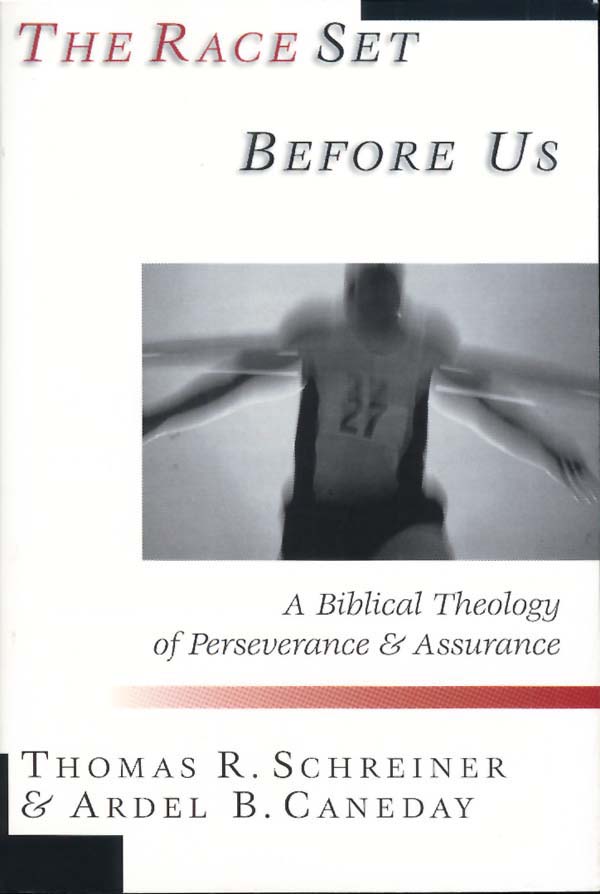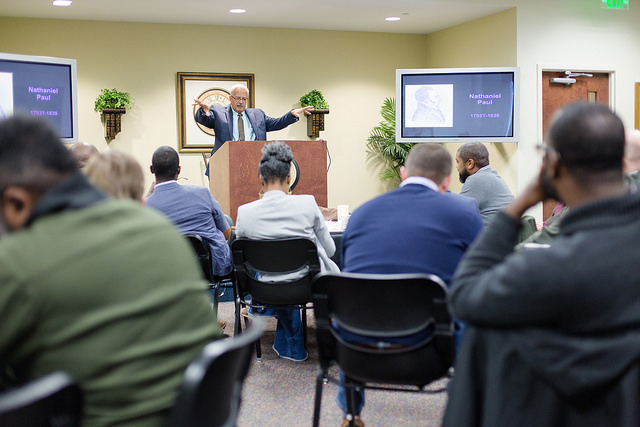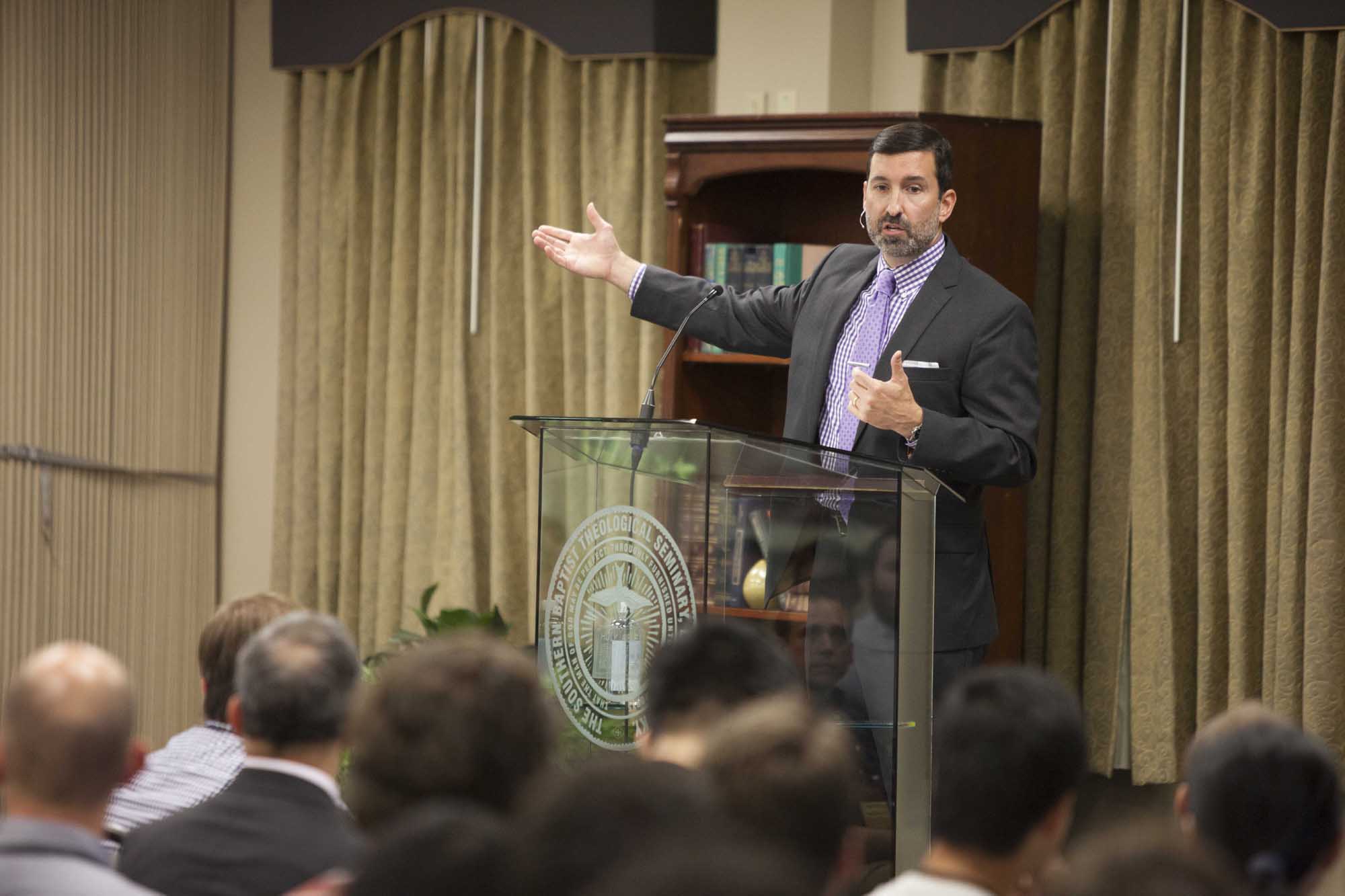
LOUISVILLE, Ky. (BP)–Ask Aunt Josephine’s relatives, and they’ll say she was once saved, always saved. The reason: she walked the aisle at age 8. She may not have darkened the church doors in recent years. She may not have read her Bible in 50 years. But at least she was baptized.
Many Baptists nevertheless say with certainty those fruitless Josephines are regenerate, saved, assured of heaven.
But, is this the biblical teaching on perseverance? Is this understanding of baptism and “making a decision” any different from the sacramentalism of Catholicism? Not really, argues Thomas Schreiner and Ardel Caneday in their recently released book, “The Race Set Before Us,” published by InterVarsity Press. Schreiner is professor of New Testament interpretation at Southern Baptist Theological Seminary in Louisville, Ky. Caneday is professor of Bible at Northwestern College in St. Paul, Minn.
“It’s struck me lately that there is a danger that Baptists can be as sacramental as Catholics,” Schreiner said. “Catholics may say, ‘At least they were baptized, while Baptists may say, ‘At least they came forward.’ In both instances the physical act may be understood as saving. It is in this sense that there is a comparison between the sacramentalism of Roman Catholics and the view of some Baptists. We must beware of understanding faith as something that was expressed once and then no further fruit is evident.”
This covert sacramentalism stems from an unbiblical view of perseverance and assurance, Schreiner said. And it is the authors’ hope that their book will stem the tide of this burgeoning misunderstanding.
“Our goal is that people would have biblical understanding of perseverance and assurance,” Schreiner said. “That’s foundational to what we were trying to accomplish. … I think many people have traditional understandings of one sort or another, but they’re not biblically oriented.”
What is the biblical teaching? Schreiner and Caneday believe the Scriptures consistently teach that, just as a runner must strive to stay in the race with the finish line as the goal, one must fight to stay in the faith with the eternal goal in mind, always clinging to the cross of Christ — hence the title of the book.
“At every point of the race we must say to ourselves, ‘I must run until the end,” Schreiner said. “We strain to reach the goal that looms before us, just as a marathon runner strategizes on how to finish the race.”
Too many churches teach that the finish line is obtained by just entering the race, Schreiner said, describing such “easy believism” — whether theoretical or practical — as a dangerous doctrine.
“How many people in our churches are unregenerate? What are the statistics?” he asked. “One-third, some studies say, never go to church. One-third go to church sometimes. … This is not just a problem among Baptists. It is a problem in evangelicalism generally.
“You make a profession of faith, and then you’re considered to be saved. Yes, if the profession of faith is authentic. But we must also remind ourselves of Jesus’ words, ‘The one who endures to the end will be saved.’ So, initial decisions of themselves, although we rejoice in them, do not clearly demonstrate whether someone is genuinely a believer.
“I love 1 John 2:3. [It does not say], ‘By this we know that we’ve come to know Him, if we go forward.’ It says, “No, by this we know that we’ve come to know Him if we keep His commands.’ John is not talking about perfection, about living a perfect life. Still, [there needs to be] some indication that your life has changed.”
Central to the whole debate on perseverance are the so-called “warning passages,” such as the one found in Hebrews 6:4-8, Schreiner said. There, the author of Hebrews warns that the enlightened who have partaken of the Holy Spirit but who have subsequently fallen away will not be renewed to repentance again and will in essence crucify Christ again.
Are the passages meant as true warnings, as Arminians have argued, and thus those who once believed may fall away? Or are the passages talking about people losing rewards instead of salvation? Or are they talking, as in the Reformed tradition, about those who were never believers in the first place?
Here, too, misunderstandings abound, Schreiner and Caneday argue.
“We feel … that this is a very difficult subject, and we don’t claim to have the last word on the matter,” Schreiner said. “On the other hand, we feel that most of what is said makes a mistake on one side or the other.”
Schreiner said that their position is close to that of the Reformed tradition mentioned above, but with an important nuance — the warnings were in fact written to true believers. Yet, those who are true believers will be preserved by means of the warnings.
“[For] those whom God has chosen, [for] those whom he has elected, our argument is the warnings are always effective,” Schreiner said. “They never fail. That’s where some people disagree with us.
“The warnings in Hebrews are not written to say those who have fallen away were never believers,” he added. “Of course, that’s true theologically. But the warnings were written to a community that was tempted to fall away. Our argument is that the warning means exactly what it says — if you fall away, you will be damned. It’s precisely by taking those warnings seriously that the elect will be preserved on the last day.”
Thus, instead of being retrospective — causing the believer to examine himself as to whether he is in fact saved — the warnings are prospective, Schreiner said. As Christians are walking forward in life, the texts summon them not to deny Jesus, but to cling to the cross.
“Our argument is that the warnings are not a test to see whether you’re really a Christian, to cause you to look inside,” Schreiner explained. “The warnings are designed to keep us in the pathway of faith, to motivate us to continue to believe. … The purpose of Hebrews 6 is to say, ‘Don’t fall away.’ It isn’t meant to drive you to introspection. It’s meant to keep you on the right road.”
Like signs on a road, the warnings are God’s ordained means of keeping the truly saved from wrecking, Schreiner said.
“[Road] signs aren’t meant to cause you to ask, ‘Am I really a good driver?’ The signs are meant to keep you driving well,” Schreiner said.
In fact, Schreiner and Caneday argue that it’s no different from what happens when you get saved. It is by means of believing that you are saved. And God “warns” if you don’t believe, then you won’t be saved. But the fact that he has promised to give you the faith doesn’t mean you don’t need to believe, Schreiner said.
“But of course, we would argue ultimately that God grants the faith to be saved just as he grants perseverance,” Schreiner said. “That doesn’t rule out the need for admonitions and warnings and conditions.
“We can see the tension between divine sovereignty and human responsibility in many passages. The Scriptures says, ‘Strive for the most excellent gifts.’ And then the Scripture says very clearly in 1 Corinthians 12, ‘God distributes the gifts as He wills.’ How many people are inclined to say, ‘Well, if God distributes the gifts as He wills, then we don’t need to strive?’ They’re violating the biblical tension there. Of course, God’s grace and His effectual work are fundamental.”
Schreiner said that running the race by heeding the warnings is also the key to having assurance of salvation.
“Paul is a very good example, because I think Paul had wonderful assurance that he was saved,” Schreiner said. “If anybody had assurance, surely Paul did. And yet Paul believed that it was crucial and mandatory that he run the race until the end. It’s a marathon. He didn’t say, ‘I know I’m going to get eternal life so it doesn’t matter whether I finish the race.'”
Ultimately, Schreiner and Caneday hope the book will help restore a biblical understanding of perseverance and assurance to the Sunday pulpit.
“Actually, every Sunday I can preach the same message to the regenerate and the unregenerate,” Schreiner said. “Every message should contain the call to repent and believe. Every step along the way we are being called to repent and believe in the gospel of Jesus Christ. Of course, this is not a human work. We are clinging to the cross of Jesus Christ.”
–30–
(BP) photo posted in the BP Photo Library at https://www.bpnews.net. Photo title: THE RACE SET BEFORE US.





















